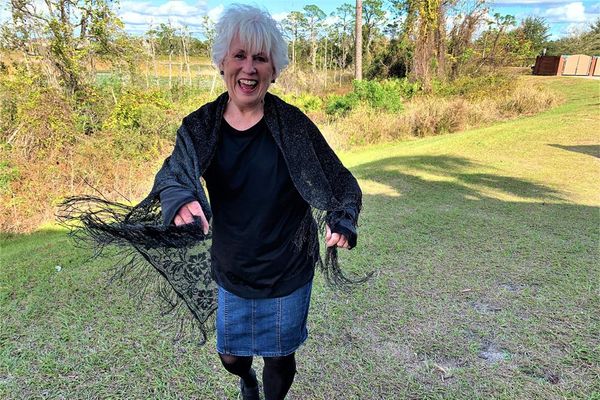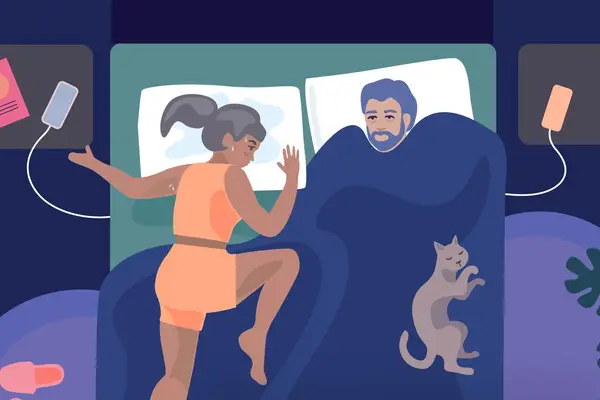Many of the diseases associated with aging are caused by lifestyle choices, including smoking, lack of exercise, chronic stress and obesity. Family history of a medical disorder, such as diabetes, heart disease, obesity or cancer, also can play a significant part. Typically women in their 60s will be concerned with these leading health issues:
Heart disease: Heart disease is a leading cause of death and disability in women. High blood pressure and high cholesterol can lead to heart attacks and strokes, so having your blood pressure and cholesterol checked regularly is essential. If you're at risk, it's important to maintain a healthy diet low in sodium and saturated fat, reduce alcohol consumption to no more than one drink per day and refrain from smoking.
Cancer: The good news is more people are surviving many forms of cancer for five years or more, and deaths from cancer are declining. But as you age, your risk for certain cancers increases, including endometrial, ovarian, colon, breast and lung cancers. Early detection and treatment are essential, so be diligent about regular pelvic and breast exams (including mammography). Unfortunately, some cancers have few or no early warning signs, such as ovarian cancer. Talk about your risk for certain cancers with your health care professional, especially if you are a smoker. Even after years of smoking, it's not too late to reverse some of the damage.
Osteoporosis: If you haven't had a bone density scan, you should have one by the time you are 65 to assess your risk for osteoporosis, which can lead to fractures. If you are under age 65 but have suffered a fracture or have other risk factors of osteoporosis, you should have a bone density scan as soon as possible. As a normal part of aging, you've been losing some bone mass for decades now—especially in the years immediately after menopause. By your 60s this rate may have started to slow, but you still could be at significant risk. The good news is that calcium, exercise, vitamins and medications can help strengthen your bones at any age.
Sensory decline: As you age, it's normal for your vision, hearing and senses of smell and taste to gradually decline a bit. The American Academy of Ophthalmology now recommends that between the ages of 40 and 64, adults with no risk factors or signs of eye disease get a baseline screening. Then based on the results of that initial screening, an ophthalmologist will prescribe the necessary follow-up exams. If you are age 65 or over, the American Academy of Ophthalmology suggests you have complete eye exams by your eye doctor every one to two years to check for cataracts, glaucoma, age-related macular degeneration, diabetic retinopathy and other eye conditions.
Treatable eye conditions common in older age include cataracts, which cloud the lens of the eye, dry eye conditions and glaucoma, in which the eye builds up pressure that can cause blindness. Ask your health care professional about which screening tests make sense for you.
Sex life: Many women in their 60s still experience sexual desire and want to continue having intimate relationships—and you should enjoy healthy sex as part of a healthy life. But, after menopause, you may need lubricants, moisturizers or vaginal estrogen to relieve dryness and make sex more pleasurable. Talk to your health care provider if you experience vaginal dryness or other sexual problems. You may also find that your partner struggles with erectile or prostate issues. Encourage him to visit his urologist.
Other conditions: There's a whole range of medical conditions that could begin in your 60s, or some health problems that you've managed over the years may become more frequent or bothersome. Not all conditions are inevitable symptoms of aging, however, and could be signs of a serious problem. A wise approach is to ask your health care professional what's normal and associated with aging and what's not, with your personal medical history and age in mind.
For instance, you may begin to have problems with bladder control, which can be caused by the weakening of muscles and ligaments in the pelvic region. Often this is successfully treated with special exercises and changes in diet. Gastrointestinal complaints such as constipation and heartburn may become more troublesome and should be checked if they occur frequently. Some women in their 60s complain of memory loss. You can help keep your mind sharp with activities like crossword puzzles and playing a musical instrument. Aches and pains could be the signs of arthritis or another autoimmune disorder, which primarily strike women.
To take charge of your preventive health, it's important to speak with your health care professional about any aging concerns you may have. Use these Questions to Ask Your Health Care Professional as guide for your conversation.
For more information on preventive health in your 60s, check out these Preventive Health Screenings You Need.







